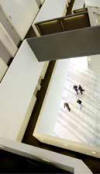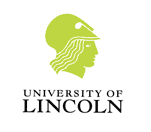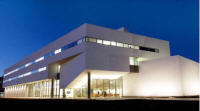Study Art, Architecture & Design
University of Lincoln
The
Faculty's three Schools provide a huge range of undergraduate, taught
postgraduate and postgraduate research programmes. The Hull and Lincoln
Schools of Art and Design, both founded in the 1860s, provide a range of
exciting, popular and well-regarded courses taught by experienced and
committed staff. The School of Architecture, now in a Rick Mather-designed
building on the main Lincoln campus, was originally established in the
1930s under Sir Leslie Martin, later professor of architecture at
Cambridge University.
The Faculty has well established research groups, good connections
with overseas universities, frequent international exhibitions and a
healthy programme of visiting lectures. Please follow the links to learn
about our various courses and other activities. I am sure you will find
our portfolio of interest.
The University of Lincoln is a truly international institution, with
students from over 50 countries across the globe arriving each year to
study with us.
"I joined the university in September 2001 and
got to know about the university through my college
in Kuala Lumpur, Malaysia. I discovered from
previous international students that the university
offers the best Architecture course. I think that I
definitely made the right choice. The architecture
department has a new, interesting and modern
building, which helps to represent the fresh look of
Lincoln."
Meree Othman BArch - Malaysia
This beautiful, historic cathedral city has much to
offer its residents as well as over one million tourists
who visit here each year. The city has a rich and
diverse history, which has seen much turmoil and change.
Romans, Vikings and Normans have all contributed to
Lincoln's history and development. The Romans arrived in
48AD and soon after Lincoln found renown as one of the
finest cities in Europe. But it was when the Norman
invasion took hold of the country that the magnificent
Cathedral, once the tallest building in the world, and
impenetrable Castle, were built, providing Lincoln's two
most impressive heritage attractions today.
In medieval times the city's wealth was derived from
the wool trade and fine examples of the rich merchants?
black and white timbered houses still survive today. The
18th and 19th centuries brought industrial innovation
and change, and Lincoln became a major engineering and
agricultural centre. The industrial development
continues in the 21st century and the historic and
modern cities coexist harmoniously today, providing a
centre of great interest and beauty for its residents
and students.
CONTACT
Jacqueline Mayer
Professor Vincent
Shacklock
Telephone: +44 (0)1522
886725 |
 | |||||||||||||||||||||


